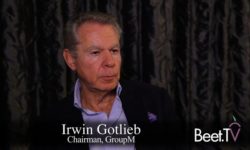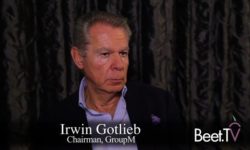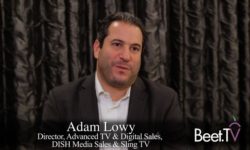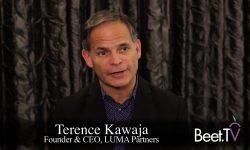LAS VEGAS – Verizon’s Oath is intent on spreading the love in 2018 as it ramps up to offer advertisers alternatives to more unified competitors like Facebook and Google.
“Build brands people love” is the mantra of the amalgamation of AOL and Yahoo that is Oath. Fittingly, the company has decided to share its “love” with advertisers and consumers at its love.com site. There resides a wealth of data from some 150,000 consumers in 13 countries to reveal what makes them love their most trusted brands.
“We love this opportunity of using what we have as an asset and let it be shared across the industry, and it’s something you’re gong to see more of,” says Tim Mahlman, President, Advertising & Publisher Strategy, Oath.
In this interview with Beet.TV at Oath’s first appearance at the annual CES confab, Mahlman explains the company’s mobile-first video push and how it intends to go big on such venerable brands as Yahoo. An example of the latter is the recently announced deal between Verizon and the National Football League. As CNBC reports, fans can live-stream playoff games on the Yahoo Sports app, a deal with the sports league that is pegged at more than $1.5 billion over five years.
“We still very much want to double down on properties like Yahoo and within that the Yahoo Finance property and Yahoo sports,” Mahlman says. “Those are still big, behemoth organizations that have massive followings, especially on the app ecosystem.”
Two themes Mahlman cites going forward are advertisers’ continued concern over ad-serving transparency and creating unique ad formats for consumers, particularly in the mobile video realm. As for the former, he says, “It really comes down to transparency and trust. It’s something we saw happen in 2017 where there’s been some turmoil.”
The need for more engaging formats is necessary to prevent consumers from shutting out ads altogether. “If we don’t take amore proactive approach on it, we could see ourselves in a much different situation.”
Mahlman believes that video needs to be “democratized” and “ubiquitous” because there’s no accounting for public taste. However, the caveat for publishers is the risk of going it on their own for video production. “If you try to produce the content on your own and you don’t get the engagement, it’s a heavy cost,” Mahlman adds.









































